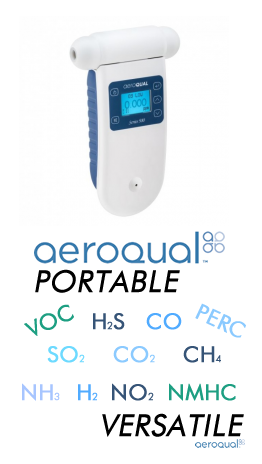Phosgene SafeAir Color Comparator (383016)
The color comparator allows you to pinpoint the exposure dose of the gas when used with the standard badge.
*Does NOT come with the badge. Badge needs to be purchased additionally*
Note: we are not able to ship the badges overseas
Color change for Phosgene is from yellow to red.
The SafeAir Phosgene badge may be used for personnel or area monitoring for exposure times from 1 minutes to 3 days. Use with the Phosgene badge for match the dose as in the exposure window.
Introduction
Phosgene is a colorless, highly toxic gas with an odor resembling moldy hay. It is an insidious poison. There is no immediate irritation even when fatal concentrations are inhaled. It may cause severe pulmonary edema (abnormal fluid build up in the lungs) or pneumonia. Inhalation of high concentrations causes choking, painful breathing and coughing. OSHA PEL (permissible) exposure limit for phosgene is 0.1 ppm (averaged over an 8-hour work shift). NIOSH IDLH (immediately dangerous to life or health) exposure limit for phosgene is 2 ppm.
Phosgene is used in the manufacturing of numerous organic chemicals. It is also used in the production of glass, resins, dyes and plastics.
Principle of Operation
The SafeAir phosgene badge is a monitoring system designed to indicate the presence of phosgene at concentrations below the permissible exposure limit. The SafeAir phosgene badge detects the presence of phosgene by forming a color change in the shape of an exclamation mark inside the triangle. This indication is produced by a color-forming reaction, which occurs when phosgene reacts with a flat indicator layer.

Operating Instructions
1. Remove the pouch from the refrigerator and allow it to warm to room temperature.
2. Remove the badge from its protective pouch.
3. Remove activation label before monitoring.
4. For personnel monitoring, attach the badge near the user’s breathing zone (i.e. the collar) with the front side exposed to the surrounding atmosphere.
5. For area monitoring, attach the badge to a stand and mount in a centralized area with the front side exposed to the surrounding atmosphere.
6. The exclamation mark appears within the triangle when phosgene is present. Please note that the exclamation mark will appear underneath the printed exposure dose (sensitivity).
7. To obtain the average concentration, divide the exposure dose (ppm∙min) by the exposure time in minutes (min).
Storage
The ChromAir phosgene monitor should be refrigerated in its sealed bag at all times.
Sampling Parameters
|
Color Change |
yellow to red |
|||||||
|
Exposure dose (Badge) |
0.5 ppm∙min (8.3 ppb∙hr) | |||||||
|
Exposure dose (Badge with color comparator ext. range) |
0.5 - 450 ppm∙min | |||||||
|
Minimum detectable limit (8 hours) |
0.001 ppm | |||||||
|
Maximum recommended sampling time |
3 days |
|||||||
|
Minimum recommended sampling time - Badge responds instantly to phosgene. However, the shortest experimentally quantifiable exposure sampling time is 1 minute |
1 minutes |
|||||||
|
Relative humidity range |
10% - 100% |
|||||||
|
Face velocity range |
5 - 168 cm/sec |
|||||||
|
Temperature range |
55ºF - 99ºF |
|||||||
|
Light effect - UV (direct sunlight) - Extensive exposure to direct sunlight will lead to darkening of the background. This may cause difficulty reading exposures less than 5 ppm∙min. |
no effect |
|||||||
|
Light effect - visible |
no effect |
|||||||
|
Refrigerated shelf life |
1 year |
|||||||
Downloads
| Manufacturer | Morphix |
|---|---|
| Call For Price | No |
| Gas | Phosgene (COCl2) |
| Operational Temperature Range | 55°F - 99°F |
| Operational RH Range | 10% - 100% |
| Maximum Exposure | 0.9 ppm∙min (15 ppb∙hr) |
| Audible Alarm | No |
| Calibration | N/A |
| Sensor Life | 3 Days |
| Range | 0.5-450 ppm-min |
| Sensor Range | 0.5-450 ppm-min |





















